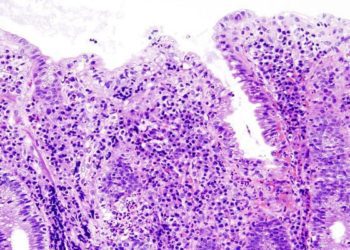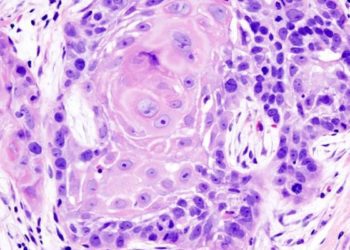Anti-CD38 monoclonal antibody improves platelet counts in immune thrombocytopenia
1. In this randomized controlled trial, CM313, an anti-CD38 monoclonal antibody therapy, was associated with rapid recovery of platelet counts among patients diagnosed with immune thrombocytopenia (ITP).
2. CM313 was associated with grade one to two adverse events.
Evidence Rating Level: 1 (Excellent)
Study Rundown: ITP is a rare autoimmune disease resulting in the destruction of platelets, thrombocytopenia, and increased risk of bleeding, often potentially fatal. The mainstay of therapy for ITP is glucocorticoid, but long-term use involves many adverse effects, and ITP relapse is common following discontinuation. Other therapies, including rituximab and splenectomy, demonstrate variable response rates. CM313, a novel anti-CD38 monoclonal antibody, was developed to target plasma cells in the pathogenesis of ITP. This was a phase 1-2 trial to evaluate CM313 in treating ITP. Following eight weekly infusions, most patients receiving CM313 had rapid recovery of platelet levels sustained through to a median of 23 weeks. Investigations found a durable reduction in plasma cell levels in treated patients. Most patients experienced low-grade adverse events, including infusion-related reactions and upper respiratory tract infections (URTI). Mouse models also showed a reduced number of CD38+ macrophages. The study was limited by its small size and open-label, non-randomized design. Nevertheless, these results showed the promise of anti-CD38 therapy as a safe and effective treatment for ITP through targeting plasma cells.
Click here to read the study in NEJM
In-Depth [randomized controlled trial]: This phase 1-2 open-label trial assessed the efficacy and safety of CM313, an anti-CD38 monoclonal antibody, in treating ITP. Adult patients diagnosed with persistent ITP with a platelet count below 30×109/L who had failed glucocorticoid treatment and had undergone at least one second-line ITP therapy were eligible for inclusion. Exclusion criteria included previous treatment with anti-CD38 drugs, infection with human immunodeficiency virus, uncontrollable infections, severe bleeding, thrombotic diseases, and pregnancy. 22 patients received an intravenous infusion of CM313 at a 16mg/kg dose once weekly for 8 weeks and were followed for 16 weeks afterward (total duration of 24 weeks). The primary outcomes were adverse events and the occurrence of two or more consecutive platelet counts ≥50×109/L during the treatment period. Secondary outcomes included immune cell profiles in patients’ peripheral blood and macrophage levels in passive mouse models of ITP on anti-CD38 therapy. The primary efficacy outcome occurred in 21 (95%) patients, with a median cumulative response of 23 weeks (interquartile range 17-24). The median time to the first platelet level ≥50×109/L was 1 week (range 1-3). In total, 14 (64%) patients experienced a durable platelet response by 24 weeks. 16 (73%) patients had at least one adverse event, with only two being grade one or two. The most common adverse events were infusion-related reactions, resolved with infusion rate reduction, glucocorticoid therapy, and URTI. A death resulting from an intracranial hemorrhage was deemed unrelated to the drug. The levels of CD38+ immune cells, including plasma cells, decreased significantly following treatment. In summary, these results showed the potential of anti-CD38 monoclonal antibodies as a treatment for ITP
Image: PD
©2024 2 Minute Medicine, Inc. All rights reserved. No works may be reproduced without expressed written consent from 2 Minute Medicine, Inc. Inquire about licensing here. No article should be construed as medical advice and is not intended as such by the authors or by 2 Minute Medicine, Inc.







